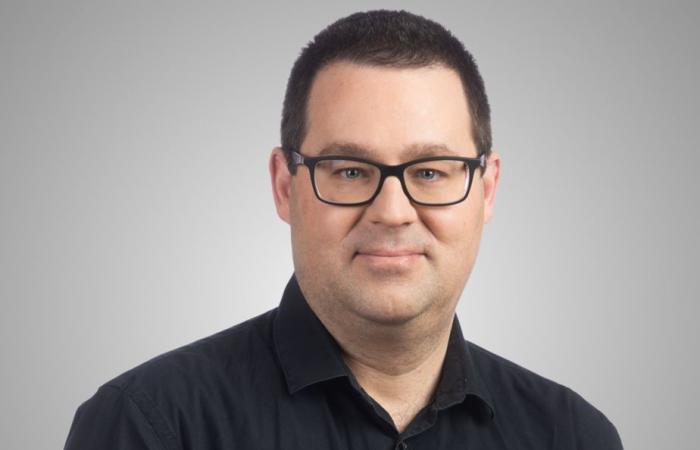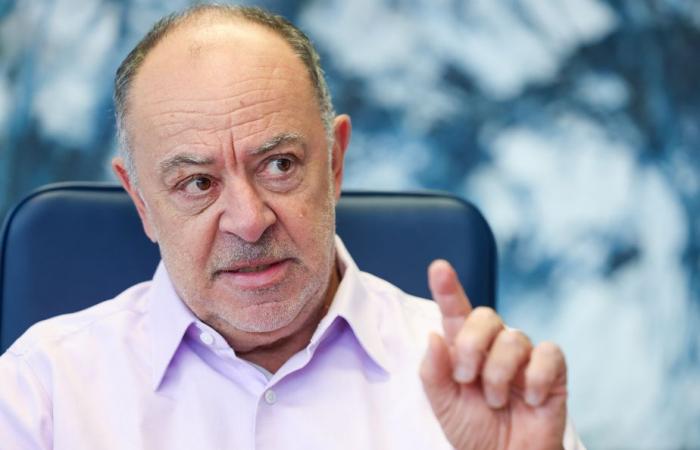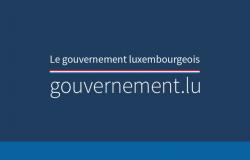With Santé Québec officially taking office on Sunday, will Quebecers finally see concrete improvements in their health system?
Published at 6:00 a.m.
The response from the Legault government: yes and no.
Monday morning, patients will not see much difference.
“It would be unrealistic” to claim the opposite, admits the Minister of Health, Christian Dubé. But in the medium and long term, he is convinced that Santé Québec will bring about beneficial changes. “Santé Québec’s biggest challenge is the challenge of changing culture at the staff level. [Ça prendra] four, five years. »
For an hour, the Minister of Health tried to convince me that the health network is moving in the right direction and that Quebecers will soon see it.
The famous dashboard of the Ministry of Health does not lie: the situation in the network is generally worse than before the pandemic. Waiting times in emergency rooms are longer. The number of patients waiting for surgery for more than a year has exploded (it has been decreasing for two years, but remains high). On the other hand, access to a family doctor is improving… which does not necessarily guarantee an appointment.
PHOTO FRANÇOIS ROY, THE PRESS
The Minister of Health, Christian Dubé
Is this to my taste right now? The answer is no. But I think things are better than they were for many Quebecers. There is still a lot to do, but more and more people will see the needle move in 2025.
Christian Dubé, Minister of Health
For the minister, the needle has even already started to move. One million more Quebecers have access to a doctor or nurse through the Front Line Access Center (GAP), he argues. Quebec opened 13 specialized nurse practitioner (IPS) clinics out of the 28 planned, granted more powers to IPS and pharmacists, put an end to “mandatory overtime” as a management method in hospitals. “If these changes had not been made, we would never be able to improve the system,” says Christian Dubé.
But on the eve of Santé Québec taking office, the minister seems to be tempering expectations. “Santé Québec was seen as a miracle solution. […] It was one of the 50 measures [de mon plan] “, he said.
Mr. Dubé hopes that Santé Québec will make network management more efficient. That it will apply best practices throughout. And also, that the administrative aspect will weigh less. He cites the thirty communications departments, legal departments, public health groups, the 140 collective agreements which will be reduced to six. “We didn’t do Santé Québec for fun,” he said.
However, Santé Québec’s first mission will be to force establishments to respect their budget. In practice, this means removing 1.5 billion from their planned spending (out of a budget of 63 billion).
It is difficult to believe that services will not be affected, the minister is told.
“Would I have liked that [Santé Québec] arrives in better conditions? The answer is yes, he says. […] If our establishments exceed their budget because it is an increase in demand [pour les services de soins]we will be much more accommodating than if it is a problem of management and administrative expenses. Today, I can’t say that it affects services. »
According to Christian Dubé, it is not the creation of Santé Québec that will produce the most rapid improvements for patients, it is new agreements with the two federations of doctors, general practitioners and specialists.
After the FIQ nurses, the Legault government is currently negotiating with the two federations of doctors (specialist doctors and family doctors). He wants to link part of the remuneration of doctors to the achievement of objectives in terms of services to the population. And regain more control over how part of the 8.5 billion envelope allocated to doctors’ remuneration is spent.
It’s major. If I do not succeed in changing certain conditions, Quebecers will not be better served.
Christian Dubé, Minister of Health
In an interview, the minister repeated three times rather than once that “it’s not the doctors who are the problem, it’s the management of the two doctors’ unions.”
“It’s normal that the government, which puts 8.5 billion in fees, has a say on the priorities. These management rights were lost by previous governments. I have to take them back. At some point, it’s the government that puts in the money. […] We will do as we did with the FIQ: we will be patient, it will take as long as it takes. »
As part of the negotiations, Quebec also wants to reach an agreement with family doctors to establish a “relevance filter” for appointments. When the patient makes an appointment, they answer a series of questions. With the help of artificial intelligence, the GMF secretariat calls them back to reassign them to another health professional if it is more relevant. There is currently a pilot project on this promising approach1. According to Quebec, this would free up between 15% and 30% of doctors’ appointments.
Verdict
Will we soon see improvements for patients? Quebecers deserve it, but I remain skeptical. Let’s say that Minister Dubé only convinced me 40%. In the long term, the creation of Santé Québec is positive. It’s a good idea to apply best practices throughout the network. But Santé Québec is not a miracle solution. And in the short term, this new entity will probably not be able to eliminate 1.5 billion in expenses without patients suffering.
1. Read the text “An SME hired to manage health traffic”
What do you think? Participate in the dialogue







